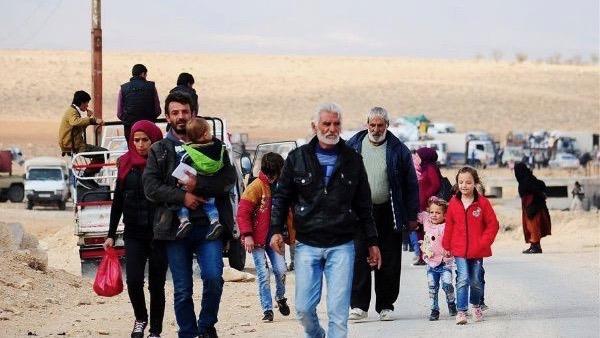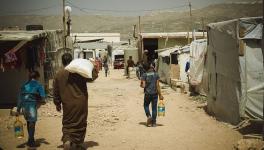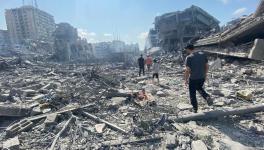More Than 1% of World Population is Forcibly Displaced, says UNHCR Report

As per the UNHCR, the total number of displaced people in the world rose by a record 9 million in 2019. (Photo: Xinhua/ Ammar Safarjalani)
In its annual “Global Trends” report released on June 18, Thursday, the United Nations High Commissioner for Refugees (UNHCR) noted that the total number of displaced people in the world rose by a record 9 million in 2019, bringing the global total to a staggering 79.5 million, which is more than 1% of the world population.
Though most of them are internally displaced, the number of people who are forced out of their countries – identified as refugees – is also rising. According to the UNHCR, 40% of the total displaced persons are children below the age of 18.
The UNHCR releases its annual data on refugees and displaced people on the eve of the World Refugees Day on June 20.
As per this year’s report, there were around 26 million refugees in the world by the end of 2019, compared to 25.4 million at the end of the previous year. Of these, 5.6 million are Palestinian refugees displaced in the 1948 Nakba and during the successive Israeli expansions into Palestinian territory.
According to UNHCR data, more than two-thirds of the non-Palestinian refugees come from only five countries – Syria, Venezuela, Afghanistan, South Sudan and Myanmar.
The destruction of the political, economic and social infrastructure of such countries by imperialist aggression, both conventional and non-conventional, remains the primary reason for the displacement of millions globally. The prolonged wars in most of these countries have also destroyed the chances of return of the refugees, who are forced to live in camps and face various forms of harassment. Climate change-induced factors, such as destruction of agricultural systems and increasing intensity and frequency of natural disasters, are fast emerging as the other major reasons for the displacement of people.
Still, more than 77% of the refugees are currently living in camps due to prolonged wars in Afghanistan, Syria, Somalia and some other African countries.
The report identifies the diminishing prospects for the refugees to return home as the most worrying trend. It says, “in the 1990s, on average 1.5 million refugees were able to return home each year. Over the past decade that number has fallen to around 385,000.”
Busting the popular myth and propaganda about the so-called ‘refugee problem’ in developed countries, the UNHCR data establishes that around 85% of the total refugees in the world are hosted by neighboring developing countries. In fact, apart from Germany, no other developed country figures in the list of top five host countries. The top five host countries are Turkey, Columbia, Pakistan, Uganda, Germany and Bangladesh.
Get the latest reports & analysis with people's perspective on Protests, movements & deep analytical videos, discussions of the current affairs in your Telegram app. Subscribe to NewsClick's Telegram channel & get Real-Time updates on stories, as they get published on our website.
























